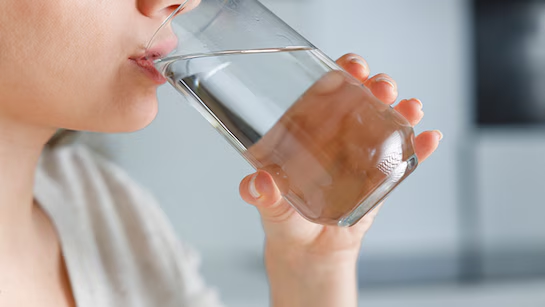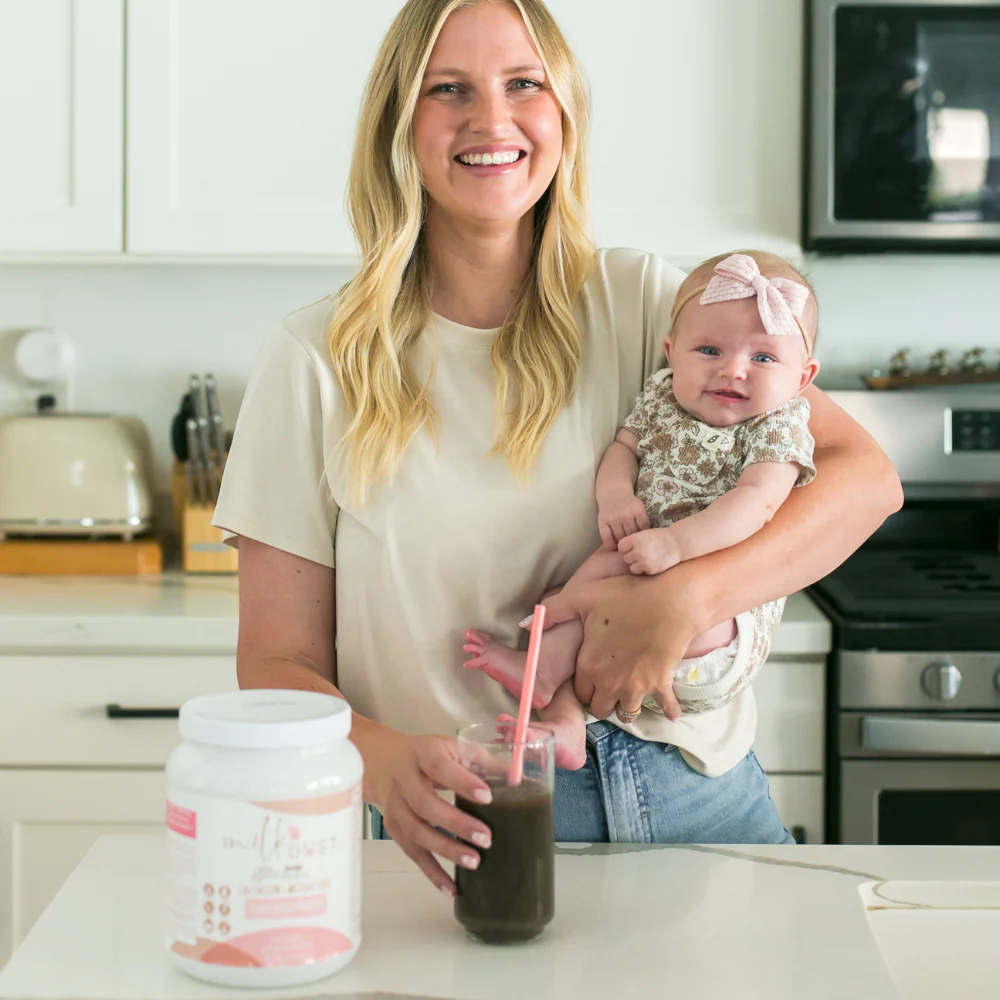After childbirth, many moms focus on recovering their strength, maintaining energy levels, and shedding excess baby weight in a healthy way. Protein plays a crucial role in postpartum recovery by supporting muscle repair, metabolism, and overall well-being. However, with so many protein powders available, choosing the right one can be overwhelming—especially for breastfeeding moms who need safe and clean ingredients.
Recommended: Best Brush for Postpartum Hair Loss
In this guide, we’ll explore the best protein powders for postpartum weight loss, what to look for when selecting one, and how to incorporate it into your diet for maximum benefits.
Why Protein is Important for Postpartum Moms
After giving birth, a mother’s body goes through significant changes and requires proper nutrition to heal, regain strength, and support overall well-being. Protein is an essential nutrient during the postpartum period, playing a crucial role in recovery, energy levels, and even weight management. Here’s why protein is so important for new moms:
1. Supports Postpartum Recovery
Pregnancy and childbirth put a lot of stress on the body. Protein helps repair tissues, heal wounds (especially for C-section moms), and rebuild muscles that may have weakened during pregnancy. It also aids in restoring strength after labor and delivery.

2. Helps with Postpartum Weight Loss
Protein boosts metabolism and keeps you feeling full for longer, reducing cravings and overeating. It also helps preserve lean muscle mass while burning fat, which is essential for losing baby weight in a healthy way.
3. Provides Energy for Daily Activities
Caring for a newborn requires a lot of energy, and lack of sleep can make exhaustion even worse. Protein helps stabilize blood sugar levels, preventing energy crashes and keeping new moms feeling more alert and active throughout the day.
4. Supports Breastfeeding and Milk Production
For moms who are breastfeeding, protein is essential for producing high-quality breast milk. A well-balanced diet with enough protein ensures that both mom and baby get the necessary nutrients for healthy growth and development.
Recommended: Best Postpartum Clothes for C-Section
5. Helps Balance Hormones and Mood
Postpartum hormonal changes can lead to mood swings, anxiety, and even postpartum depression. Protein contains amino acids that support neurotransmitter function, helping stabilize mood and promote mental well-being.
6. Strengthens Hair, Skin, and Nails
Many moms experience hair thinning or brittle nails after pregnancy due to hormonal shifts. Protein (especially collagen-based sources) helps improve skin elasticity, strengthen hair, and promote overall skin health.
Factors to Consider When Choosing a Protein Powder for Postpartum Moms
Choosing the right protein powder for postpartum weight loss is essential for both your recovery and overall health. Since new moms need safe, high-quality nutrition—especially if breastfeeding—it’s important to select a protein powder that supports your body without harmful additives. Here are key factors to consider when making your choice:
1. Type of Protein
There are different types of protein powders, each with unique benefits:
- Whey Protein: Fast-absorbing and rich in amino acids, great for muscle recovery.
- Plant-Based Protein (Pea, Hemp, Brown Rice, or Soy): Ideal for vegans or those with dairy allergies.
- Collagen Protein: Supports skin elasticity, joint health, and postpartum healing.
- Casein Protein: Slow-digesting, providing a steady release of protein throughout the day.
2. Clean and Safe Ingredients
Look for protein powders with minimal, natural ingredients. Avoid those with:
- Artificial sweeteners (Aspartame, Sucralose, or Saccharin)
- Preservatives or fillers
- Excessive sugar or added chemicals
3. Nutritional Profile
Choose a protein powder with a balanced mix of protein, fiber, and healthy fats to keep you full and support postpartum weight loss. Also, check for additional vitamins and minerals that benefit new moms, like iron, calcium, and B vitamins.
Recommended: Best Freezer Meal For Postpartum
4. Breastfeeding-Friendly Formula
If you’re breastfeeding, ensure the protein powder is safe for lactation. Some ingredients, like fenugreek, can boost milk supply, while others, like excessive caffeine, may affect your baby. Always check labels and consult your doctor if unsure.
5. Digestibility and Allergen Considerations
Postpartum digestion can be sensitive, so choose a protein powder that’s easy to digest. Avoid:
- Dairy-based powders if you’re lactose intolerant
- Soy if you have hormone-related concerns
- Gluten if you have sensitivities
6. Taste and Versatility
You’ll be drinking this often, so choose a protein powder with a flavor you enjoy! Look for one that mixes well with smoothies, oatmeal, or baked goods for variety.
7. Brand Reputation and Reviews
Stick to trusted brands with positive reviews from other moms. Look for third-party testing and certifications like USDA Organic, Non-GMO, or NSF Certified for Sport to ensure quality and safety.
Best Types of Protein Powder for Postpartum Weight Loss
Choosing the right protein powder can help postpartum moms regain strength, lose excess baby weight, and stay energized while caring for their newborns. The best protein powders for postpartum weight loss should be clean, easy to digest, and support overall health. Here are some of the top options:
1. Whey Protein

Whey protein is fast-absorbing and rich in essential amino acids, making it ideal for muscle recovery and metabolism. It helps maintain lean muscle mass while losing fat, which is essential for healthy postpartum weight loss. However, it may not be suitable for lactose-intolerant moms, and some brands contain artificial sweeteners or fillers, so checking labels is important.
2. Plant-Based Protein (Pea, Hemp, Brown Rice, or Soy)
Plant-based protein is a great option for moms who are vegan or dairy-sensitive. It often contains fiber, which aids digestion and satiety, and pea protein is especially high in iron, supporting postpartum recovery. However, some plant-based proteins have a slightly grainy texture and may lack certain amino acids compared to whey.
Recommended: Best Postpartum Gifts for Mom
3. Collagen Protein
Collagen protein supports skin elasticity and helps with postpartum hair loss. It also aids in joint recovery, which is important after pregnancy. This type of protein is easily digestible and blends well with drinks and smoothies. However, it is not a complete protein, as it lacks certain essential amino acids, so it’s best when combined with other protein sources for balanced nutrition.
4. Casein Protein
Casein protein is slow-digesting, providing long-lasting satiety and helping maintain muscle mass while promoting fat loss. It is ideal for nighttime use to prevent muscle breakdown. However, it is not suitable for those with dairy intolerance, and its slower absorption means it is not the best choice for post-workout recovery.
5. Egg White Protein
Egg white protein is a high-quality protein source containing all essential amino acids. It is a dairy-free option for moms who cannot consume whey and supports muscle repair and fat metabolism. However, some people may experience digestive discomfort when consuming egg white protein, and it is typically more expensive than other protein powders.
How to Incorporate Protein Powder into Your Postpartum Diet
Adding protein powder to your postpartum diet is a simple and effective way to support recovery, boost energy, and aid in healthy weight loss. Here are some easy ways to include it in your daily routine:
1. Blend It Into Smoothies
Smoothies are a quick and delicious way to consume protein. Blend protein powder with fruits, leafy greens, nut butter, and milk or a dairy-free alternative for a nutrient-packed meal or snack.
2. Stir It Into Oatmeal or Yogurt
Add a scoop of protein powder to your morning oatmeal or yogurt for an extra protein boost. Mix well and top with fruits, nuts, or seeds for added nutrients.
Recommended: Best Bathing Suits For Postpartum
3. Use It in Baking
Protein powder can be added to homemade muffins, pancakes, energy bars, or cookies. This is a great way to increase protein intake while enjoying a tasty treat.
4. Make a Protein Shake
For a quick and easy option, mix protein powder with water, milk, or a plant-based milk alternative. This is perfect for busy moms who need a nutritious drink on the go.
5. Add It to Soups and Sauces
Unflavored protein powder can be stirred into soups, stews, or pasta sauces without affecting the taste. This helps boost protein intake without making major changes to your meals.
6. Mix It Into Coffee or Tea
If you enjoy coffee or tea, try adding protein powder for a creamy, protein-rich drink. Some protein powders dissolve easily in hot beverages, making them a great alternative to sugary creamers.
7. Combine It With Nut Butters
Mix protein powder into peanut butter, almond butter, or any nut spread. Spread it on toast, add it to smoothies, or enjoy it with fruits for a satisfying snack.
8. Prepare Overnight Oats
Mix protein powder into overnight oats along with chia seeds, milk, and fruits. Leave it in the fridge overnight for a ready-to-eat, high-protein breakfast.
Recommended: When to Take Ovulation Tests After Period
Additional Tips for Healthy Postpartum Weight Loss
Losing weight after pregnancy takes time, and it’s important to focus on overall health rather than quick fixes. Here are some key tips to help you achieve healthy postpartum weight loss while maintaining your energy and well-being:
1. Prioritize Nutritious Foods
Focus on whole, nutrient-dense foods such as lean proteins, whole grains, fruits, vegetables, and healthy fats. These foods support recovery, provide energy, and help with milk production if you’re breastfeeding.
2. Stay Hydrated
Drinking enough water is essential for metabolism, digestion, and energy levels. Staying hydrated also helps control hunger and supports breastfeeding moms in maintaining a good milk supply.

3. Eat Enough Protein
Protein helps with muscle recovery, fat loss, and keeping you full longer. Include lean meats, eggs, dairy, legumes, nuts, and protein powder in your meals.
4. Get Moving Gradually
Start with light exercises like walking or gentle stretching before progressing to more intense workouts. Postpartum yoga, bodyweight exercises, and strength training can help rebuild core strength and boost metabolism.
5. Don’t Skip Meals
Skipping meals can slow metabolism and lead to overeating later. Instead, eat balanced meals and snacks throughout the day to keep energy levels steady.
6. Get Enough Sleep
Sleep is crucial for weight loss and overall health, but it can be challenging with a newborn. Try to rest when possible, ask for help when needed, and avoid too much caffeine close to bedtime.
Recommended: Best Vitamins to Regulate Menstrual Cycle
7. Manage Stress Levels
High stress can lead to emotional eating and weight gain. Engage in stress-relieving activities like deep breathing, light exercise, journaling, or listening to calming music.
8. Be Patient and Kind to Yourself
Postpartum weight loss is a gradual process, and every mom’s journey is different. Focus on feeling strong and healthy rather than setting unrealistic goals. Celebrate small progress, and don’t compare yourself to others.
Conclusion
Losing weight and maintaining a healthy lifestyle after childbirth requires patience, balance, and the right nutrition. Protein plays a vital role in postpartum recovery, supporting muscle repair, energy levels, and weight loss. By choosing the right protein powder and incorporating it into your daily meals, you can make your postpartum journey smoother and healthier.
Remember, postpartum weight loss is not about quick fixes but about nourishing your body while taking care of your baby. Pairing good nutrition with hydration, gentle exercise, stress management, and adequate rest will help you achieve your health goals sustainably. Be kind to yourself, focus on progress rather than perfection, and celebrate the small wins along the way.
